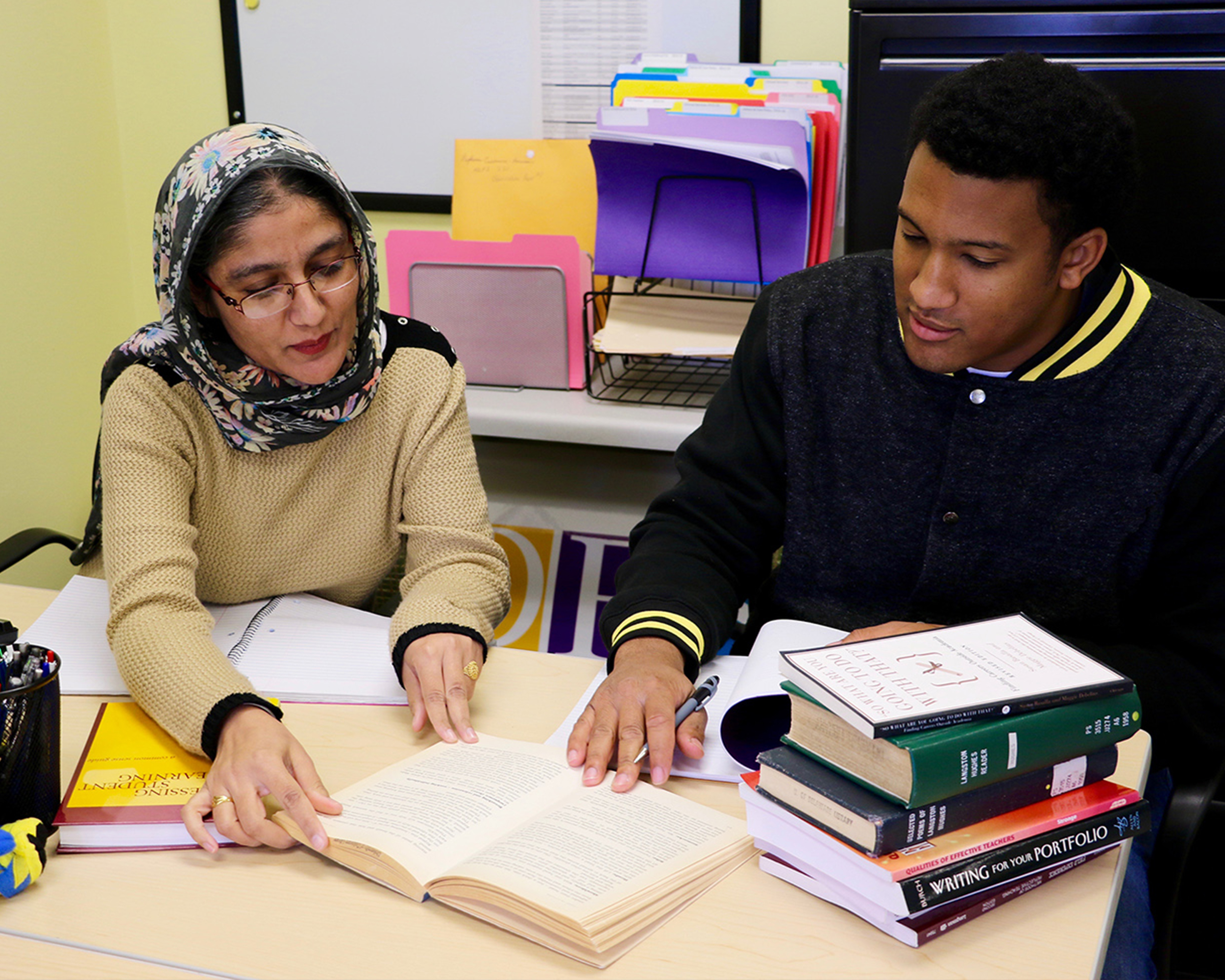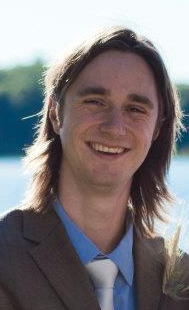Research Spotlight: Adrian Pasquarella

University of Delaware professors address critical need for English Language teachers in Delaware through research and professional development program
Every day, Delaware educators teach multilingual learners (MLLs), yet many feel underprepared to support them. With more than 19,000 MLLs in the state, University of Delaware faculty are working during National Hispanic Heritage Month this fall and year round to address the needs of these students and their teachers.
Supported by a $2.6 million federal grant, Associate Professor Adrian Pasquarella and Professor Nigel Caplan have offered this much-needed support since 2023 through the statewide Project DELITE (Delaware English Learners’ Impact on Teacher Education). The five-year project allows 60 teachers and 15 education paraprofessionals to take the UD courses necessary to attain certification as a Teacher of English Learners or a Bilingual Teacher and participate in a professional learning community.
“Our study on the need for MLL professional development found that Delaware educators reported low levels of self confidence and self-efficacy in teaching MLLs, despite working with large numbers of MLLs daily,” said Pasquarella, who specializes in literacy instruction for MLLs in the College of Education and Human Development (CEHD). “Now, our first cohort of educators have just completed the Project DELITE program, and we’re eager to share its impact. Our preliminary results show that teachers’ self-efficacy, confidence and knowledge of key concepts for teaching MLLs—like oral language development, translanguaging and culturally responsive pedagogy—all increased.”
Understanding the need for MLL professional development
In a study published in TESOL Journal, Pasquarella and his team examined the perspectives of the Delaware elementary and secondary educators participating in Project DELITE before their MLL coursework began. Their questionnaires asked the educators—who had an average of 11 years of teaching experience—about their confidence levels when it came to teaching MLL learners, whether they believed their own teaching practices to be effective and whether they needed more support, among other items.
Across all grades levels, teachers consistently reported low levels of confidence and self-efficacy. On average, the educators taught 22 MLLs daily, but only reported an average of three hours of MLL professional development over the last five years. However, levels of confidence, self-efficacy and professional development were related. Educators who received more professional development were more confident, regardless of the number of years they had been teaching.
“What this study highlights is the need for sustained English as a Second Language-specific professional development for all mainstream teachers who work with MLLs,” Pasquarella said. “Professional development options could be a part of their initial licensure or subsequent professional learning. Initiatives like Project DELITE provide accessible and equitable pathways for teachers to complete an accreditation program and develop a sustainable community of practice that supports MLLs in Delaware.”
Early impact of Project DELITE
Two years after the launch of Project DELITE, 44 Delaware educators have completed the program so far. With the support of the UD teaching and research team, they bolstered their knowledge of MLL instruction and refined their teaching practices, completing five online UD graduate courses and participating in a yearlong professional learning community. They also completed capstone projects on supporting MLLs with writing, science, technology and their students’ families, presenting their work at the annual Delaware Multilingual Learner Conference in June 2025.
While the research team’s formal analysis of the program’s impact is still forthcoming, participating educators have consistently praised Project DELITE for increasing their pedagogical knowledge and confidence levels.
“It gave me a lot more confidence in how I support [MLLs],” said one participant. “It helped get rid of biases, like thinking they’re going to be delayed or struggle more. The research and coursework showed me they’re not at a disadvantage—they’re at an advantage.”
“As a science teacher, I didn’t realize how hard it is to learn content and language at the same time,” said another participant. “Now I understand the process better, and I know how critical it is to give time and support.”
“At the end of the day, our goal isn’t just to help teachers earn certification—it’s to transform the way schools in Delaware approach MLLs,” Pasquarella said. “When educators feel confident and supported, MLL students thrive. That’s the real impact we are working towards with Project DELITE.”
To learn more about CEHD research in literacy and MLL education, visit its research page. To learn more about the services UD provides to individuals seeking high-quality, English language programs, visit UD’s English Language Institute webpage. Educators seeking a graduate degree in Teaching English as a Second Language (TESL) may also visit CEHD’s M.A. in TESL page.
Article by Jessica Henderson.

About Adrian Pasquarella
Adrian Pasquarella is an associate professor specializing in literacy education in CEHD’s School of Education. Pasquarella’s research areas include language and literacy acquisition and development in linguistically and culturally diverse populations, understanding universal and language-specific aspects of reading and writing, cross-language transfer, reading comprehension, vocabulary knowledge and morphological awareness. He teaches courses related to literacy instruction, specifically for multilingual learners, and leads the Multicultural Education and Literacy Development (MELD) lab.
Pasquarella’s research complements the work of CEHD faculty studying language and literacy, including Steve Amendum, Christina Budde, Martha Buell, David Coker, Stephanie Del Tufo, Ralph Ferretti (emeritus), Roberta M. Golinkoff, Myae Han, Benjamin James, Rachel Karchmer-Klein, William Lewis, Charles A. MacArthur (emeritus), Kristen Ritchey, Carol Vukelich (emeritus), Sharon Walpole and Joshua Wilson.



